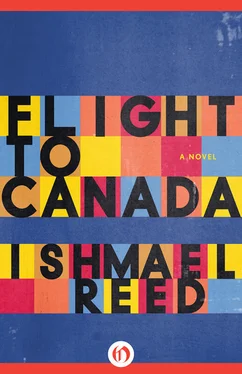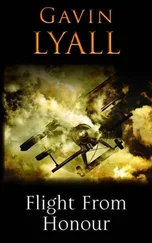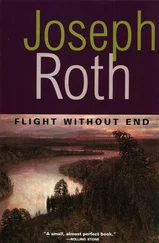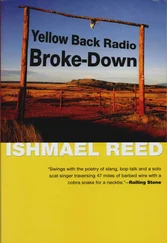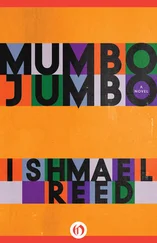“I don’t know what you and Quickskill are talking about. House talk. Talk from the living room of ideas. He didn’t take the check. It doesn’t matter now. He’s dead. I wasn’t doing all that when I ran away. Not what you said. I not only ran away from the Master, but from the slaves too. Sometimes it was hard for me to tell the difference. I got whips from both of them. I decided to do it for a living. As you can see from my clothes and from my newly acquired wealth, it’s a thriving industry. Anyway, you keep doing it, Uncle Robin.” Leechfield left for the kitchen.
Robin smiled. That Leechfield is a flambeau carrier in a Mardi Gras parade.
The violet sun was setting behind the Virginia hills. Soon it would be night. A night so black the stars looked like scattered sugar crystals.
That was a strange letter from Raven this morning. I’m glad he’s doing my book. I’ll be glad to see him again. I wonder did he find what he was looking for in Canada? Probably all that freedom gets to you. Too much freedom makes you lazy. Nothing to fight. Well, I guess Canada, like freedom, is a state of mind. Them counts and earls look like they’re free, but they’re not free. Always in the newspapers caught with their baby dolls. Old Abe showed them, though. What a player. Abe showed those dukes and earls. Old Jeff Davis in jail, doomed to be the name on a dirt road in crawfish country, Louisiana.
What happened to all they Canadas? Quickskill, 40s, Leechfield, Davis, Swille, old Abe. Old Abe gunned down while watching a comedy. Gunned down by one of those true savages, dressed in zealot’s popinjay clothes. Maybe Raven can talk about all of that. Glad my letter reached him up at the Eagle Hotel. Old. Pompey knew. How did Pompey know? What a strange one. Knew where Raven was. Like he flew my letter to Raven at the Eagle Hotel. What did Raven mean when he said, “Writing always catches up with me”? Quickskill — that boy has tried to be so clear. He’ll always be a poet, that Raven.
I couldn’t do for no Canada. Not me. I’m too old. I done had my Canadas. I’m like the fellow who, when they asked why he sent for a helicopter to get him out of prison, answered, “I was too old to go over the wall.” That’s the way I feel. Too old to go over the wall. Somebody had to stay. Might as well have been me and Judy. Yeah, they get down on me an Tom. But who’s the fool? Nat Turner or us? Nat said he was going to do this. Was going to do that. Said he had a mission. Said his destiny was a divine one. Said that fate had chosen him. That the gods were handling him and speaking through him. Now Nat’s dead and gone for these many years, and here I am master of a dead man’s house. Which one is the fool? One who has been dead for these many years or a master in a dead man’s house. I’ll bet they’ll be trying to figure that one out for a long time. A long, long time.
Well, you had to hand it to Swille. He was a feisty old crust. Lots of energy. What energy? Rocket fuel. And Ms. Swille. She had a lawyer who could have sprung John Wilkes Booth. Lawyers for those who dwell in castles. The rich get off with anything, it’s us serfs who have to pay. I don’t want to be rich. Aunt Judy is right I’m going to take this fifty rooms of junk and make something useful out of it.
Who pushed Swille into the fire? Some Etheric Double? The inexorable forces of history? A ghost? Thought? Or all of these? Who could have pushed him? Who?
“Uncle Robin?”
Robin turns to his secretary, Pompey, who as usual has appeared from out of nowhere.
“Yes, Pompey?”
“Raven is back!”
12:01 A.M.
Tamanaca Hotel, Room 127
Fat Tuesday March 2, 1976
New Orleans
* Corn-syrup solids, vegetable fat, sodium caseinate, mono and diglycerides, dipotassium phosphate, sodium silicoaluminate, artificial flavor, tricalcium phosphate, and artificial colors.
A Biography of Ishmael Reed
Ishmael Reed (b. 1938) is an acclaimed American novelist, essayist, and poet, whose work often challenges mainstream culture and conveys the perspectives of minorities — especially African Americans — whose voices are underrepresented. He has been called “great” by novelist James Baldwin; Sam Tanenhaus of the New York Times ; Ta-Nehisi Coates of the Atlantic ; and Harvard University Press Over the past forty years, Reed has published more white authors than white literary magazines have published black, Hispanic, Native American, and Asian American authors.
Born in Chattanooga, Tennessee, Reed grew up in Buffalo, New York. He studied at the University at Buffalo, which later became the State University of New York (SUNY), before moving to New York City, and later, California. For thirty-five years Reed taught at the University of California, Berkeley, while maintaining visiting appointments with several other institutions, including Harvard University, Yale University, Dartmouth College, and the University at Buffalo, SUNY.
Reed’s activities in 2012 alone exemplify his position among the most well-known international writers and performers. Conjure, a band that has performed his poetry and songs since 1983, with various personnel including Bobby Womack, Taj Mahal, Jack Bruce, and Allen Toussaint, presented a concert at the Sardinia Jazz Festival. At the request of the US State Department, Reed visited middle schools and universities in East Jerusalem. He attended the launch of his new book, Going Too Far , in Montreal, joining the city’s mayor and a member of Quebec’s National Assembly. And he delivered the keynote address at a literary conference in Beijing.
Reed’s songs have been performed and recorded by Taj Mahal, Cassandra Wilson, the Roots, Mary Wilson of the Supremes, Little Jimmy Scott, Bobby Womack, and most recently, Macy Gray, among others. His writing has become a favorite of musicians. Funk star George Clinton, for instance, cites Reed’s novel Mumbo Jumbo as an inspiration, and the late rapper Tupac Shakur cites Reed in his song “And Still I Rise.” In 2012, Reed was named the first SFJAZZ Poet Laureate. Reed has performed with his band at Yoshi’s, the landmark San Francisco jazz club, and as a solo jazz pianist at Rome Neal’s Banana Puddin’ jazz series at the Nuyorican Poets Café in New York City. Reed’s first album, For All We Know (2007), features Reed on piano, his partner Carla Blank on violin, and David Murray on saxophone.
In 1965, with counterculture activist Walter Bowart, Reed named and helped co-found the East Village Other , or EVO , a biweekly paper that was an early example of the alternative press. In addition to frontline journalism from the cultural underground, EVO featured collages and early comics by such notable artists as Spain Rodriguez, Robert Crumb and Art Spiegelman. Reed was also a member of the Umbra Writers Workshop, a collective of young black writers living in New York, which included David Henderson, Calvin Hernton, Tom Dent, Askia Touré, Lorenzo Thomas, and Joe Johnson.
Beginning with The Free-lance Pallbearers in 1967, Reed has published ten novels, including Mumbo Jumbo (1972), Flight to Canada (1976), and most recently, Juice! (2011). His writing spans other genres as well, including plays, essays, and poetry. In 1972, Reed was nominated for a National Book Award for Mumbo Jumbo and for his book of poetry, Conjure (1972). Conjure was also nominated for a Pulitzer Prize, while New and Collected Poems: 1964–2006 (2007) received a Gold Medal from the Commonwealth Club of California. Reed received the MacArthur Fellowship (otherwise known as the “genius grant”) in 1998.
Reed has attracted praise from such scholars and critics as Harold Bloom, for Mumbo Jumbo ; Nobel laureate Derek Walcott, for his poetry; the New York Times music critic Jon Pareles, for his songs; and critic Clive Barnes, for his plays. Backstage , the New York theater trade magazine, compared him to Molière. In 1979, he won a Pushcart Prize for his essay “American Poetry: Is There a Center?” Reed’s cartoons have been published in the San Francisco Chronicle, Black Renaissance Noire , and the New York Amsterdam News .
Читать дальше
